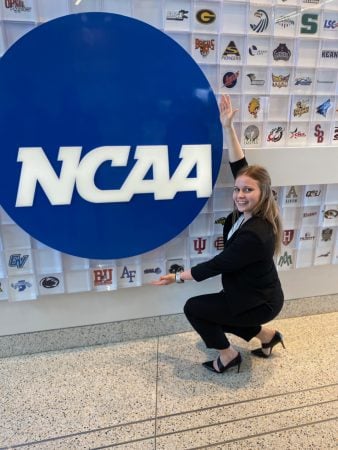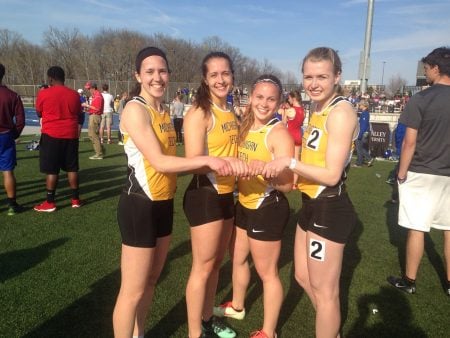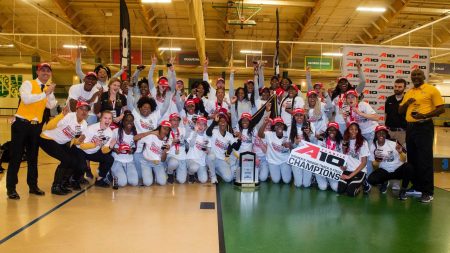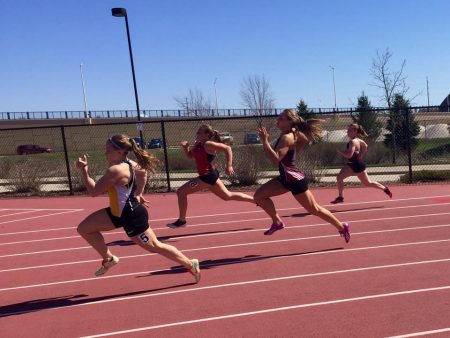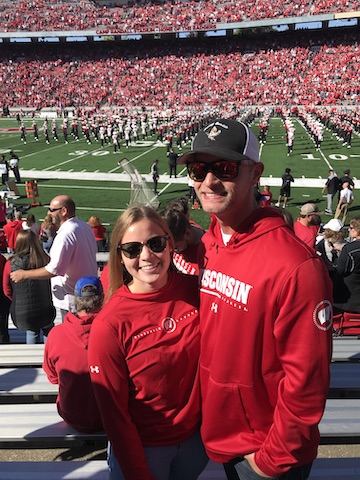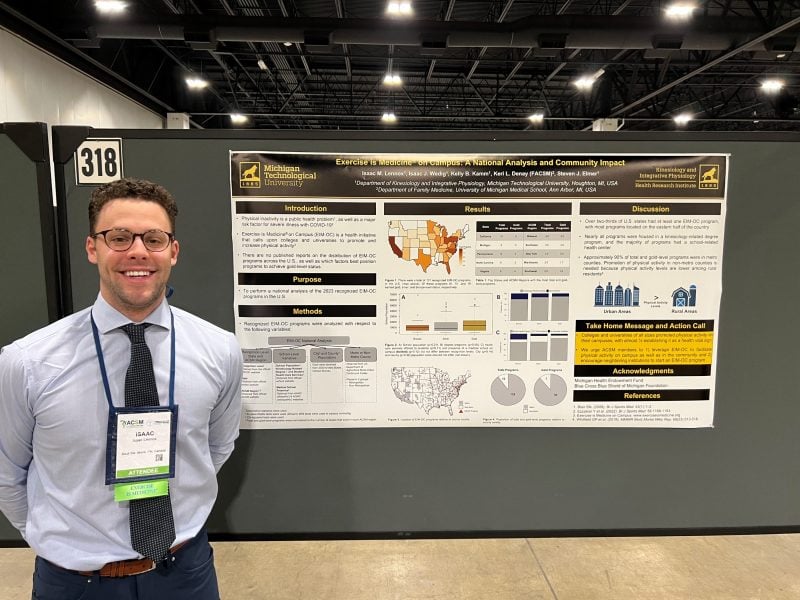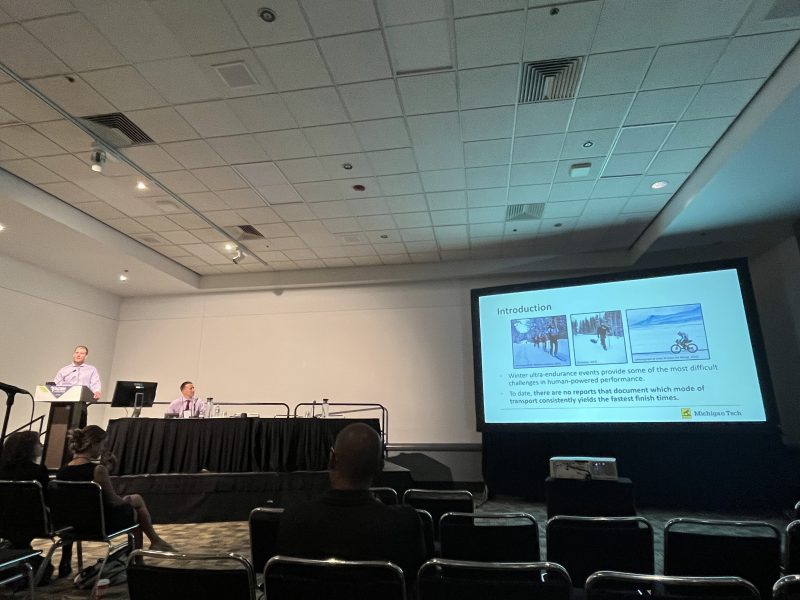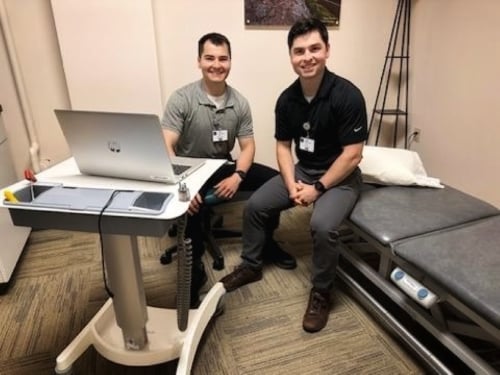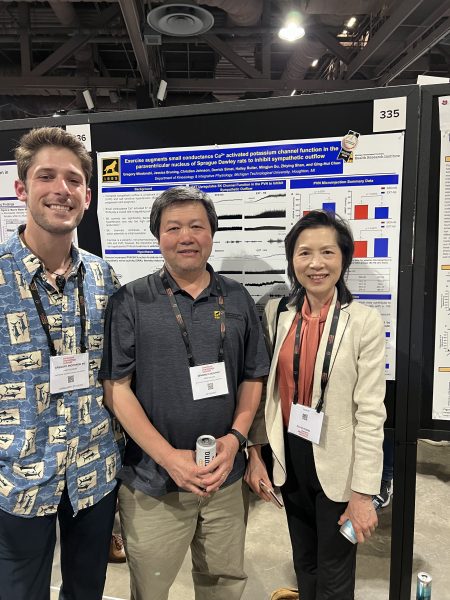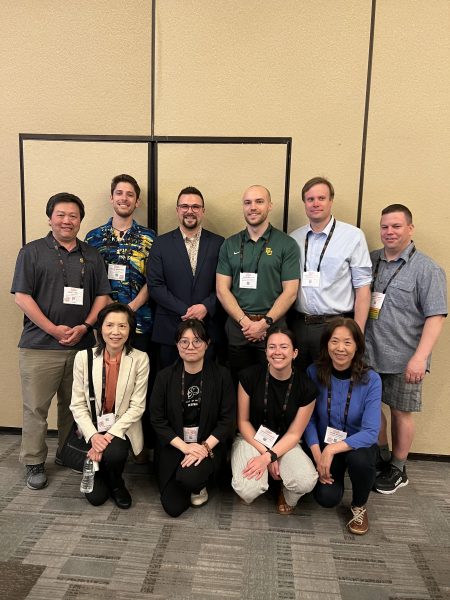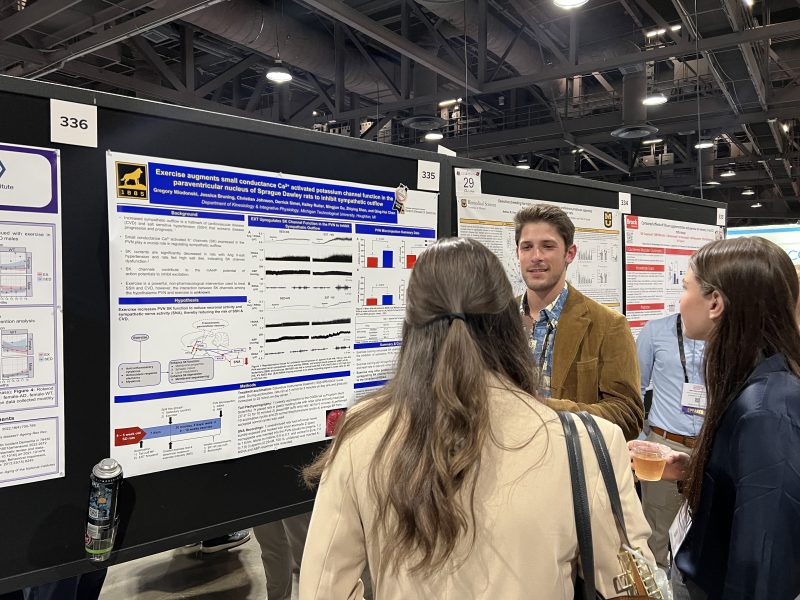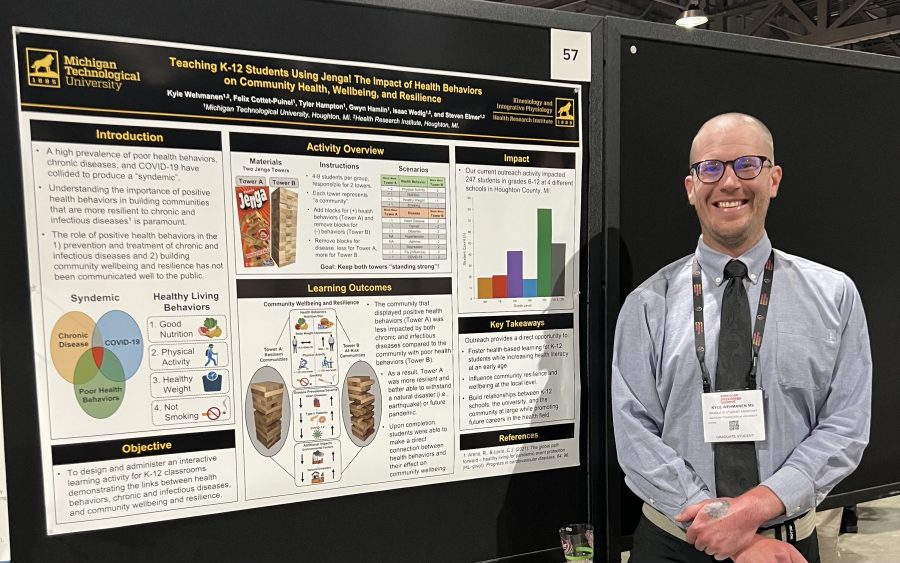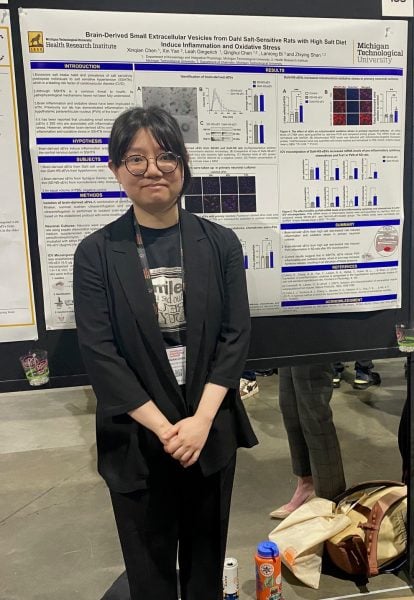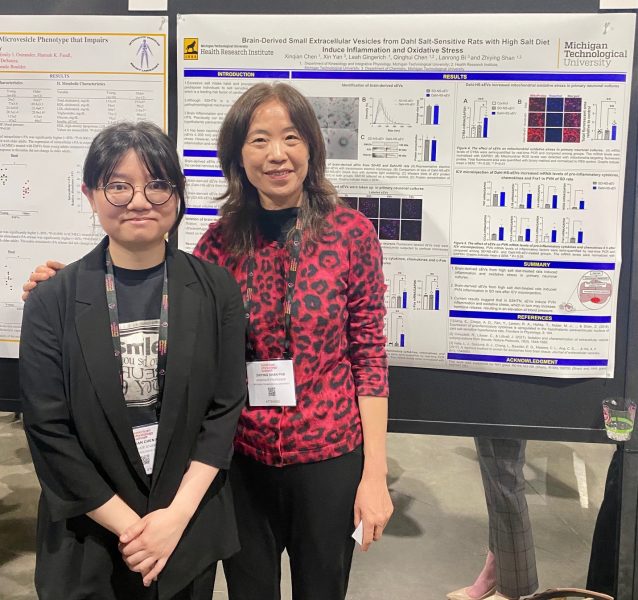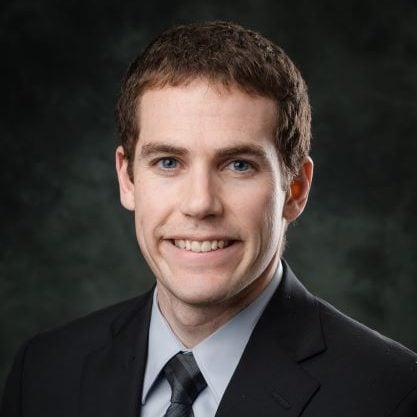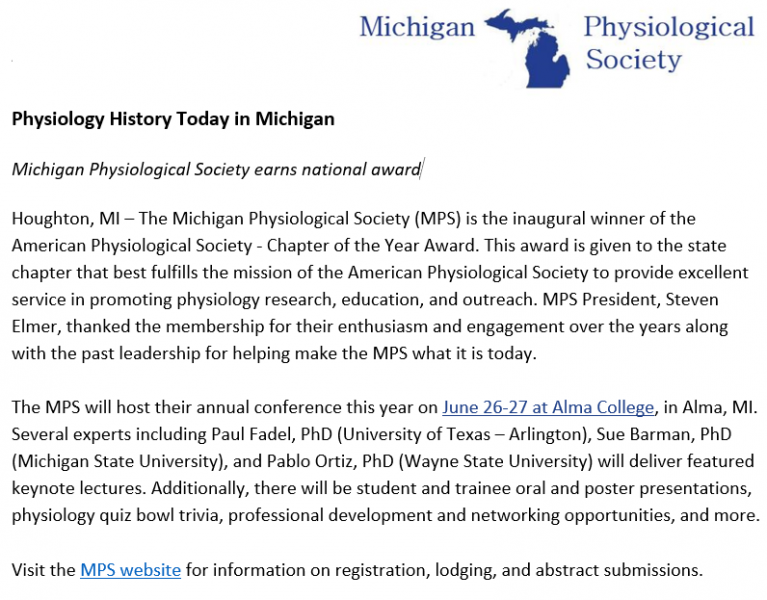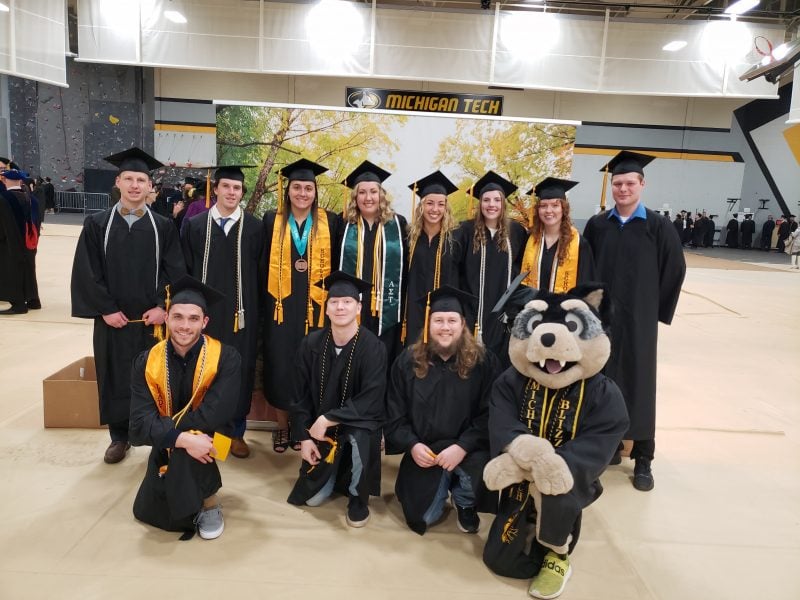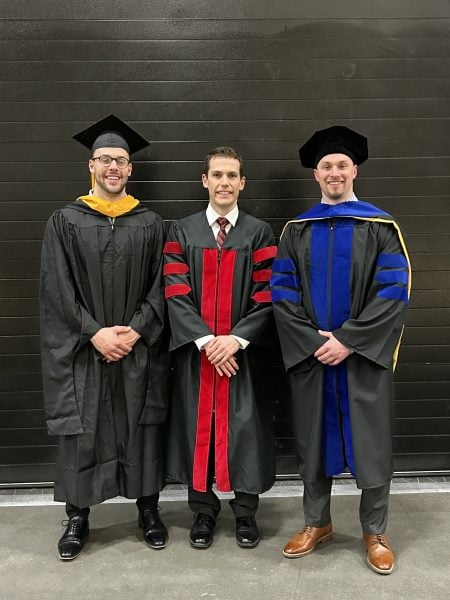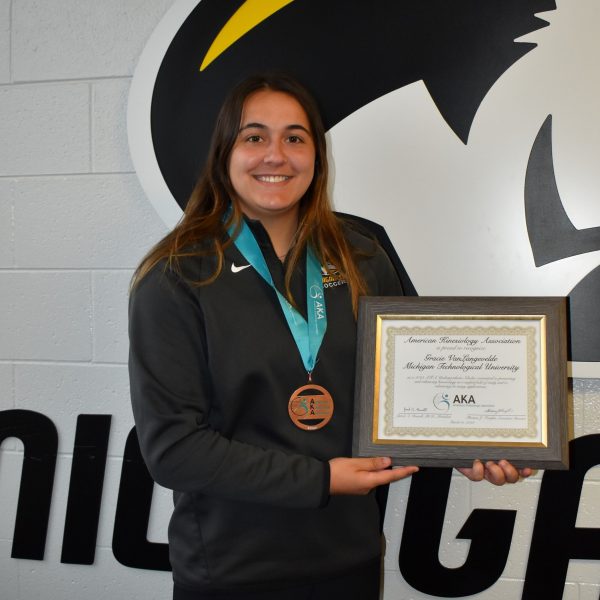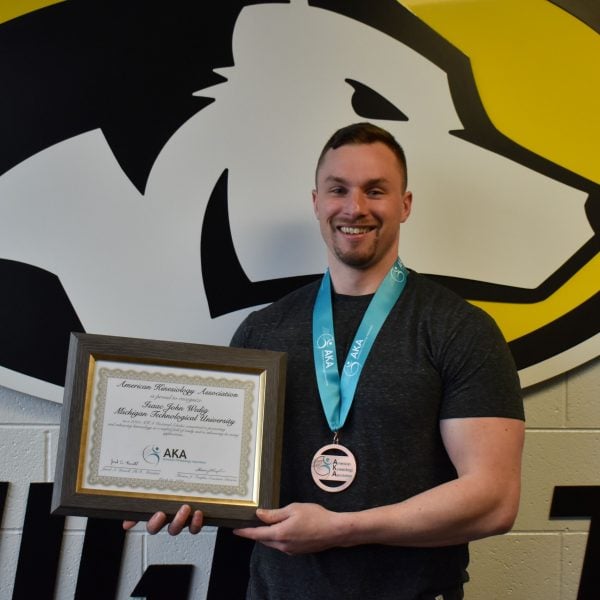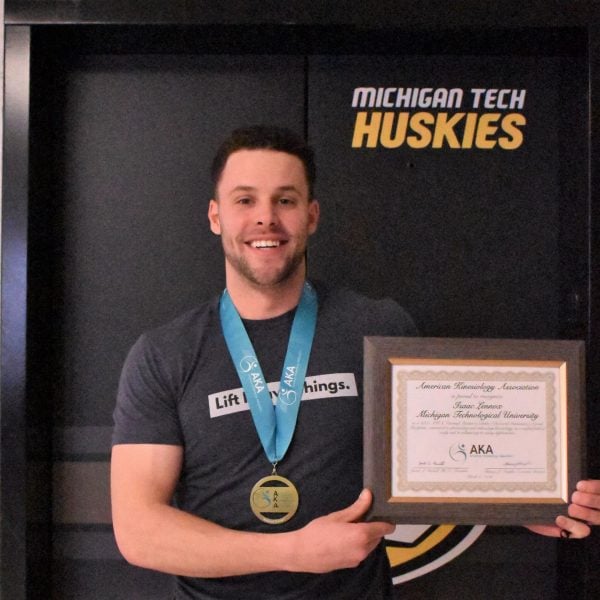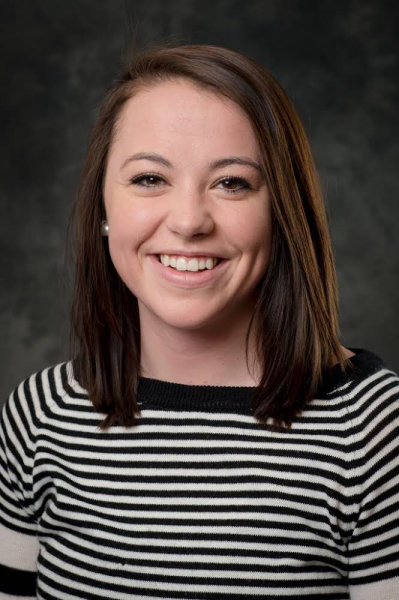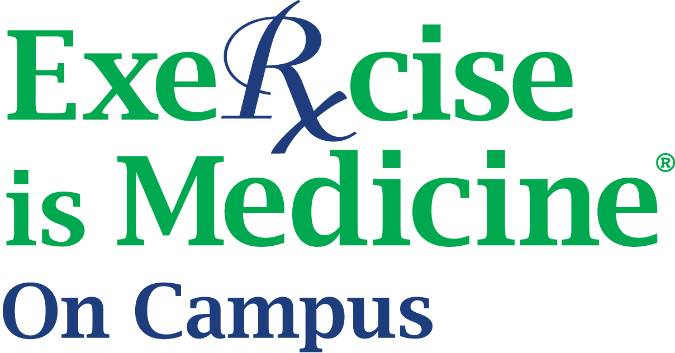
Michigan Tech is among 156 campuses honored worldwide.
Michigan Tech University is one of only 156 universities and colleges around the world to be honored by Exercise is Medicine® for its efforts to create a culture of wellness on campus. Students and faculty that deliver the “UP and Moving” Program housed in the Department of Kinesiology and Integrative Physiology helped the university to earn a silver level designation from the Exercise is Medicine® On Campus (EIM-OC) program.
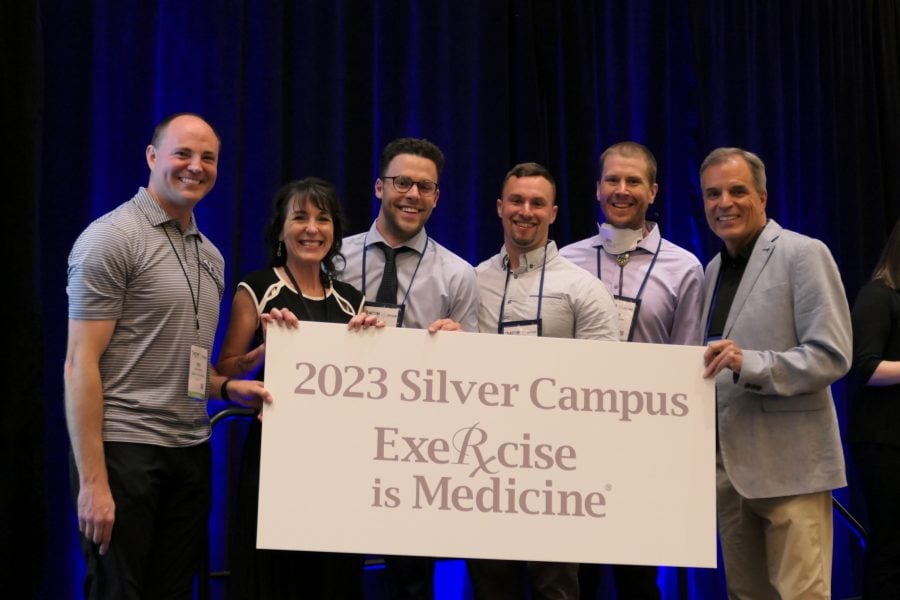
“We are thrilled to recognize these campuses’ commitment to make movement a part of daily campus culture and give students the tools to cultivate physical activity habits that will benefit them throughout their lives,”said Robyn Stuhr, Vice President of Exercise is Medicine. “These campus programs are nurturing future leaders who will advance a key tenet of Exercise is Medicine®: making physical activity assessment and promotion a standard in health care.”
The U.S. Department of Health and Human Services recommends that adults engage in at least 150 min of moderate-to-vigorous intensity physical activity each week along with two days of muscle strengthen activities. To facilitate physical activity, the UP and Moving program offers free virtual home-based workouts to keep students, staff, faculty, and community members active. The home-based workouts do not require any specialized equipment and are easily adapted to fit a wide range of ages and ability levels. The live workouts are also recorded and available to watch anytime on the program’s website.
The UP and Moving Program was created in 2020 by a team of graduate students supervised by Steven Elmer, Associate Professor in the Department of Kinesiology and Integrative Physiology. Workouts are led by students and include both aerobic exercise (i.e., walking) and muscle strengthening exercise (i.e., weightlifting). Abby Brooks, a master’s student in kinesiology and UP and Moving Coordinator, emphasized, “Engaging in regular physical activity helps improve overall physical health, as well as mental health and well-being.”
EIM-OC calls upon universities and colleges to promote physical activity as a vital sign of health and encourages students, staff, and faculty to work together to improve the health and well-being of the campus community. EIM-OC launched its recognition program in 2014 to honor campuses for their efforts to create a culture of wellness. Schools earn gold, silver, or bronze status based on their activities. Of the 156 campuses recognized this year, 73 received gold, 60 silver, and 23 bronze. All gold, silver, and bronze campuses will be recognized on June 1 as part of the 2023 Exercise is Medicine World Congress, held in conjunction with the American College of Sports Medicine’s Annual Meeting.
As a silver level campus, the UP and Moving program has helped engage students, staff, and faculty in educational and wellness initiatives and make movement part of the daily campus and community culture. “An important next step for reaching gold level status is for the UP and Moving program at Michigan Tech to partner with local health care providers to establish physical activity as a health vital sign,” explained Isaac Lennox, a master’s student in kinesiology and UP and Moving coordinator. More information about the UP and Moving program can be found on their website.
The American College of Sports Medicine (ACSM) co-launched Exercise is Medicine® in 2007 with the American Medical Association. The ACSM, the largest sports medicine and exercise science organization in the world, continues to manage this global health initiative, which seeks to make physical activity assessment and promotion a standard in clinical care, connecting health care with evidence-based physical activity resources for people everywhere of all abilities. Exercise is Medicine® is committed to the belief that physical activity promotes optimal health, is integral in the prevention and treatment of many medical conditions and should be regularly assessed and included as part of health care. To learn more about Exercise is Medicine® and view a complete list of EIM-OC recognized schools, visit their website.
